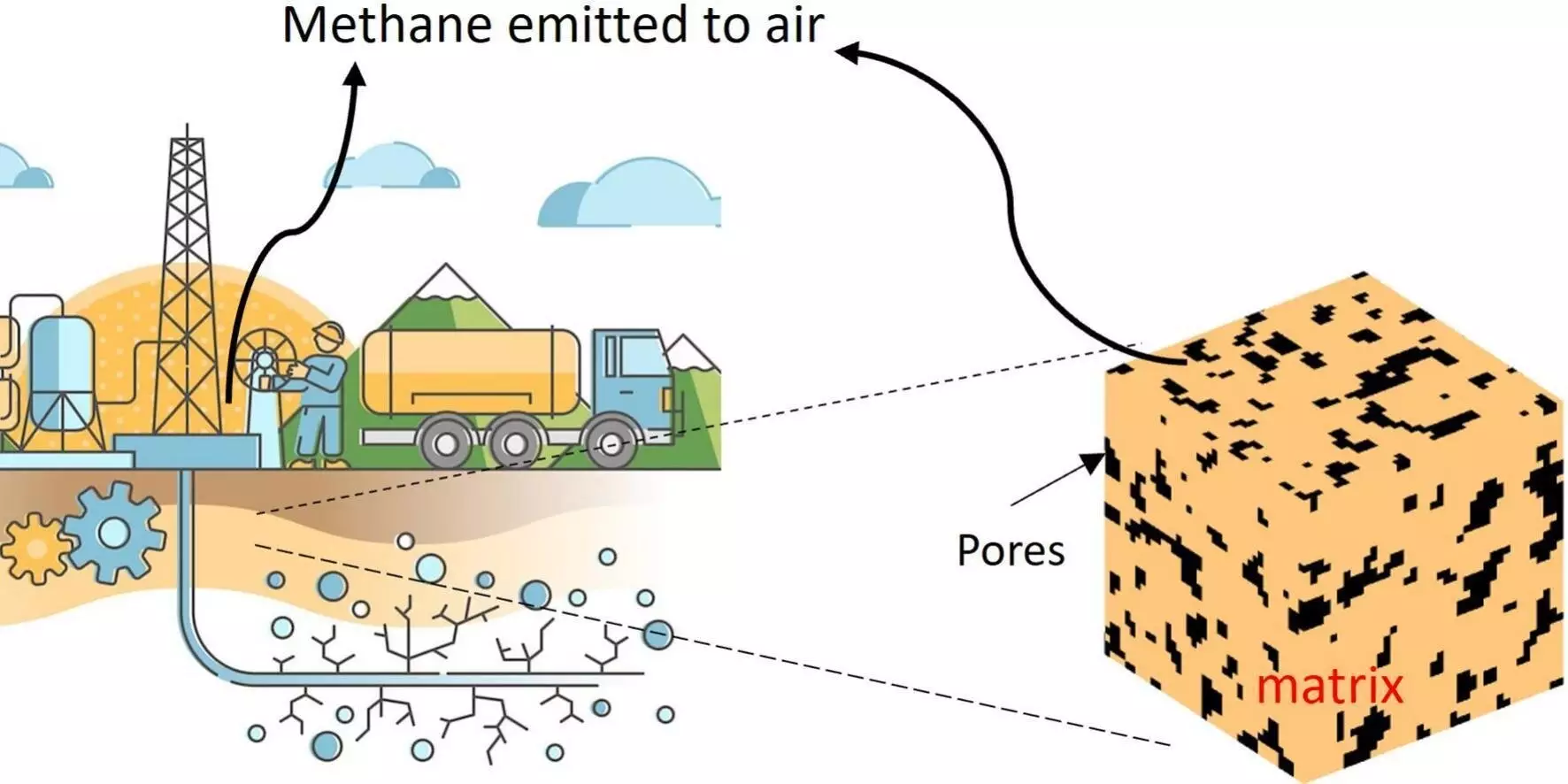Natural gas extracted from shale formations has been deemed a crucial energy resource due to its lower carbon footprint in comparison to other fossil fuels. However, concerns have been raised regarding increased methane emissions associated with this process. While the drilling and operation of shale wells are known for significant methane emissions, a new study led by Penn State researchers sheds light on the potential methane emissions post decommissioning of these wells.
The Research Process
The research team, led by professor Shimin Liu, created a tool to estimate the emission potential of shale wells after they are no longer active. By analyzing shale samples, they were able to predict the movement of methane within the formation based on its pore structure. The unified gas transport model developed integrates the behavior of all gases in the shale to forecast methane’s flux. This model was validated through experiments conducted on Marcellus shale samples in Liu’s laboratory at Penn State.
The findings of the study offer valuable insights for the energy industry, especially in regions like Pennsylvania, where a significant number of shale gas wells have been drilled. The tool developed by the researchers enables operators to calculate methane emissions flux based on shale samples, aiding in predicting potential leakage post well abandonment. With methane emissions having a higher global warming potential than carbon dioxide, mitigating these emissions is a critical priority.
As methane diffusion from shale formations occurs slowly, there is a need for long-term monitoring of methane emissions from abandoned shale gas wells. Regulatory requirements should be put in place to ensure proper plugging techniques are implemented after decommissioning, as leaving the wellbore open can lead to a buildup of methane emissions over time. The researchers suggest maintaining reservoir pressure even post-production cessation as a strategy to reduce methane emission potential from these abandoned wells.
Understanding the behavior of methane emissions from abandoned shale gas wells is crucial in mitigating the environmental impact of natural gas extraction. The research conducted by the Penn State team offers a proactive approach for the energy industry to assess and address potential methane leakage post well decommissioning. By implementing proper monitoring and mitigation strategies, the industry can work towards reducing methane emissions and fulfilling global commitments to lowering greenhouse gas emissions.


Leave a Reply